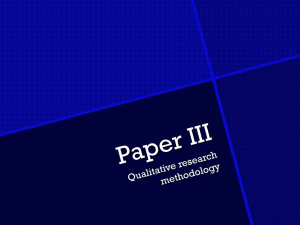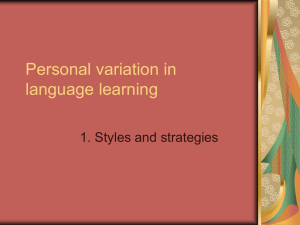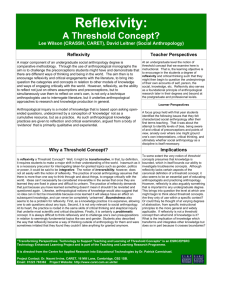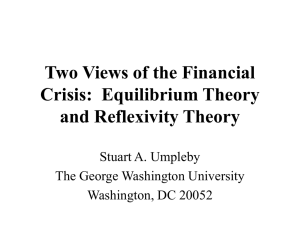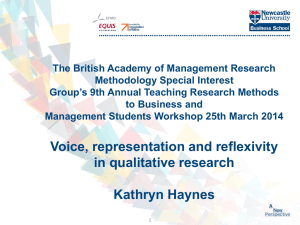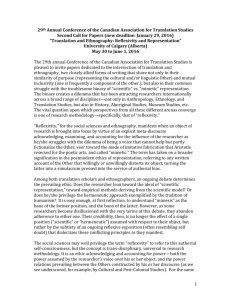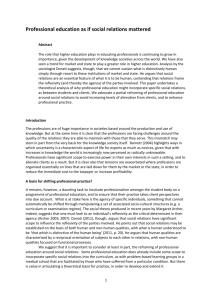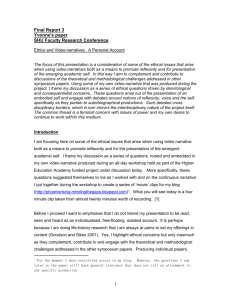early human reflexivity
advertisement
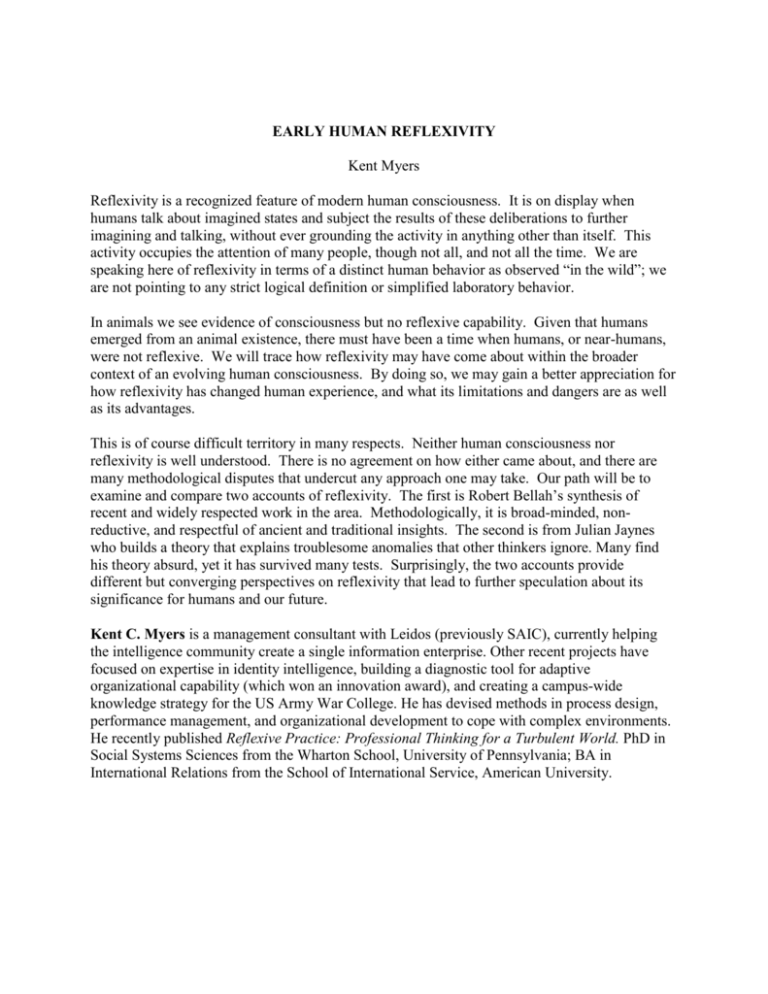
EARLY HUMAN REFLEXIVITY Kent Myers Reflexivity is a recognized feature of modern human consciousness. It is on display when humans talk about imagined states and subject the results of these deliberations to further imagining and talking, without ever grounding the activity in anything other than itself. This activity occupies the attention of many people, though not all, and not all the time. We are speaking here of reflexivity in terms of a distinct human behavior as observed “in the wild”; we are not pointing to any strict logical definition or simplified laboratory behavior. In animals we see evidence of consciousness but no reflexive capability. Given that humans emerged from an animal existence, there must have been a time when humans, or near-humans, were not reflexive. We will trace how reflexivity may have come about within the broader context of an evolving human consciousness. By doing so, we may gain a better appreciation for how reflexivity has changed human experience, and what its limitations and dangers are as well as its advantages. This is of course difficult territory in many respects. Neither human consciousness nor reflexivity is well understood. There is no agreement on how either came about, and there are many methodological disputes that undercut any approach one may take. Our path will be to examine and compare two accounts of reflexivity. The first is Robert Bellah’s synthesis of recent and widely respected work in the area. Methodologically, it is broad-minded, nonreductive, and respectful of ancient and traditional insights. The second is from Julian Jaynes who builds a theory that explains troublesome anomalies that other thinkers ignore. Many find his theory absurd, yet it has survived many tests. Surprisingly, the two accounts provide different but converging perspectives on reflexivity that lead to further speculation about its significance for humans and our future. Kent C. Myers is a management consultant with Leidos (previously SAIC), currently helping the intelligence community create a single information enterprise. Other recent projects have focused on expertise in identity intelligence, building a diagnostic tool for adaptive organizational capability (which won an innovation award), and creating a campus-wide knowledge strategy for the US Army War College. He has devised methods in process design, performance management, and organizational development to cope with complex environments. He recently published Reflexive Practice: Professional Thinking for a Turbulent World. PhD in Social Systems Sciences from the Wharton School, University of Pennsylvania; BA in International Relations from the School of International Service, American University.
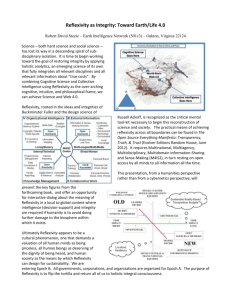
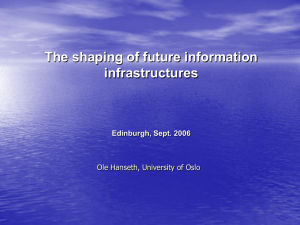
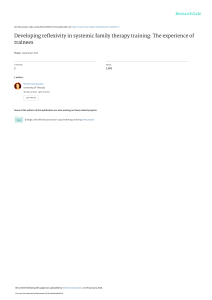
![Reflexivity in Academic Research [.PPT]](http://s2.studylib.net/store/data/005467615_1-5f1ed51efa2e2c6daa464b130d515ef6-300x300.png)
